 I've gotten another e-mail forward that I couldn't resist replying to. The subject line was 'Bill Cosby...Tired at 83'. It's a list of all the supposed ills in our society, and how the writer is tired of them. And surprise, surprise, the writer's opinions just happen to coincide with a typical right wing stance (see my older entry, Right Wing E-mails).
I've gotten another e-mail forward that I couldn't resist replying to. The subject line was 'Bill Cosby...Tired at 83'. It's a list of all the supposed ills in our society, and how the writer is tired of them. And surprise, surprise, the writer's opinions just happen to coincide with a typical right wing stance (see my older entry, Right Wing E-mails).
The easiest thing to check is whether or not Bill Cosby actually wrote this. In fact, the e-mail is so prevalent that Cosby decided to respond on his own personal website in a post he titled If you got the BOGUS email, it's time to hit DELETE!. As you can probably guess from the title, Cosby didn't write this article, and he certainly doesn't agree with it. Here's what he wrote in that post.
There's an email floating around - entitled "I'm 76 and tired" - purportedly sent by me. I did not write the email, I did not send the email, I'm not 76, and I don't subscribe to the ugly views expressed in the email. We are coming up to an important anniversary on Sunday, which is a day when we should all come together. Whoever wrote this email is not thinking about our country, or what is important. If you get the email, it's time to hit DELETE.
Even if Cosby didn't write the e-mail, somebody did. According to Snopes, it was written by a former Massachusetts senator named Robert A. Hall.
With that simple bit of fact checking out of the way, it's time to address the actual claims of the article itself. I'll use my standard method of indenting a passage from the article, following it up with my response. And since this entry is a little long, I'll put a little index up here at the top so that you can jump ahead to different sections, if you want.
And now, on to the e-mail.
Life isn't tied with a bow, but it's still a gift.
And life isn't fair, but it's good!!
No comment so far.
"I'm 83 and I'm Tired"
I'm 83. Except for brief period in the 50s when I was doing my National Service, I've worked hard since I was 17. Except for some serious health challenges, I put in 50-hour weeks, and didn't call in sick in nearly 40 years. I made a reasonable salary, but I didn't inherit my job or my income, and I worked to get where I am. Given the economy, it looks as though retirement was a bad idea, and I'm tired. Very tired.
This strikes me as a rather self-centered view. 'I' did this, and 'I' did that. Has he never heard of the phrase, 'standing on the shoulders of giants', or 'It takes a village to raise a child'? I'm glad he's been able to turn his hard work into success, but he does nothing to recognize the culture, background, or infrastructure that's allowed him to be successful.
I'll use myself as an example. I'm reasonably successful in life, and I've worked to get where I am, but I'm not going to pretend that I'm solely responsible for my own success. My wife and I have taken a few trips down to Guatemala to help the people down there. And I've asked myself, what if I'd been born there instead of here. No matter how much talent I had, or how hard I would have worked, I know my life wouldn't have been as good as it has been here in the U.S.
That's a big jump, but you can look at smaller differences depending on your background in this country. If I expand my example to my whole family, both of my brothers have also been reasonably successful, all of us earning college degrees, and all of us having good jobs as adults. But we all grew up in a household that emphasized education, provided a good environment to nurture our education, and where it was understood that we would all go to college because it was in my parents' means to provide that for us. If I look to my wife's family, none of that was the case. Not only was college not really thought about, it was expected that the older siblings would drop out of high school to get jobs to help support the family. So, if I compare myself to my in-laws, and note that I have a better job than them, I'm not going to pretend that it was solely or even mainly my own hard work and initiative that's responsible for that outcome. Had they been given the same opportunities I've been given, assuming that they put in the same effort that I have, I'm pretty sure the outcomes would have been similar.
And it's not just my personal anecdotes that support this. In a recent interview on NPR, Tom Harkin brought up a sobering statistic [which after further investigation, seems like it may be exaggerated], "Right now, if you are a high-income, low performance student, you have an 80 percent chance of going to college. If you are a low-income student, but high-performing with a B or better average, you only have a 20 percent chance of going to college." If hard work were enough, the good students from low-income families would be just as well represented in colleges as their wealthier counterparts.
[Note 2015-02-18: Trying to track down the source of Harkin's stat, I found a graph on the Economic Policy Institute's The State of Working America site, comparing slightly different variables, but closely related to those in Harkin's statement. It shows that students who perform well academically but have a low socioeconomic status only have a 28.8% chance of graduating from college, while students who perform poorly but come from a high socioeconomic status have a 30.3% chance of graduating from college. High performing wealthy students have a 74.1% chance of graduating. These are a little less stark than Harkin's statement, but without knowing how he defined income or performance, it's a little hard to classify his statement one way or the other. At any rate, the stats from the EPI are still sobering, and the general conclusion still stands that hard work isn't always enough to overcome socioeconomic obstacles.]
I'm tired of being told that I have to "spread the wealth" to people who don't have my work ethic. I'm tired of being told the government will take the money I earned, by force if necessary, and give it to people too lazy to earn it.
I'm a little tired of this fake 'spread the wealth' complaining. First off, let's look at income inequality. Here's a graph from the Economic Policy Institute (The Increasingly Unequal States of America).
The share of all income held by the top 1%, United States and by region, 1917-2011
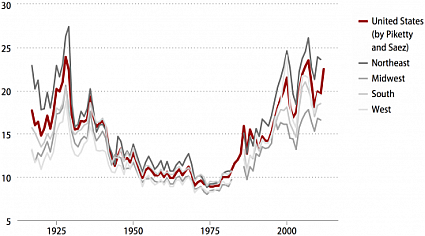 (Source: Economic Policy Institute)
(Source: Economic Policy Institute)
Since the '70s, the top 1% have significantly increased their share of the total income. Granted, income is not the same as wealth, but if more of the income is going to the wealthy, that means less of the income is going to poor people, so it's going to be even harder for them to improve their lot.
But since this writer was specifically talking about 'spreading the wealth', or taking money away from those who have earned it and giving it to people who haven't, let's take a look at wealth distribution instead. If there really was 'spreading the wealth', with the government acting as a bureaucratic Robin Hood, you'd expect to see the wealthy's share of the wealth decreasing, while the poor's share of the wealth would increase. But that's not what's happening. Here's one way of looking at it - total net worth, from another article by the Economic Policy Institute (Confirming the further redistribution of wealth upward). The table below is from the article, while I made the graph by plotting that data.
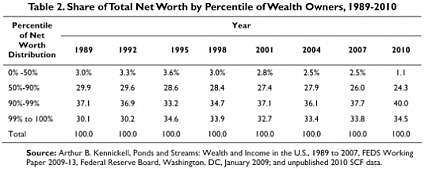 (Source: Economic Policy Institute)
(Source: Economic Policy Institute)
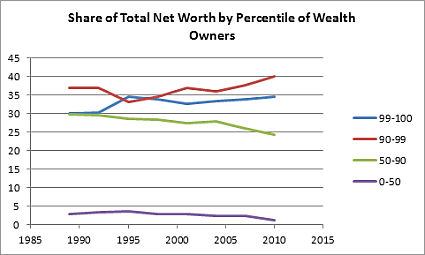
Just look at those numbers for a minute. The top 10% have seen a growth in their share of the wealth, while the bottom 90% have seen their share decrease. The bottom half of the population went from having 3% of the wealth in 1989 to only 1.1% in 2010. In other words, if you combine everything that that half of the country owns, it comes out to just 1.1% of the total wealth of the nation. By contrast, the share of the top 1% has increased from 30.1% to 34.5%. Or to put that another way, the top 1% of the nation owns over 1/3 of all of the nation's wealth. Add in the stat that the next 9% own 40% of the wealth, and you end up with the fact that the richest 10% of Americans own 74.5% of the nation's wealth.
Whether or not you think that wealth distribution is fair, it certainly doesn't show a redistribution from wealthy to poor. There is no 'spreading the wealth' going on right now. It's a 'consolidating the wealth', putting more and more of our nation's money into the hands of a select few.
Here's another way of looking at it, from yet another Economic Policy Institute article (Occupy Wall Streeters are right about skewed economic rewards in the United States). This is similar, comparing the ratio of the wealth of the top 1% to the median wealth. This one goes back further into the '60s, showing that this is a long term trend.
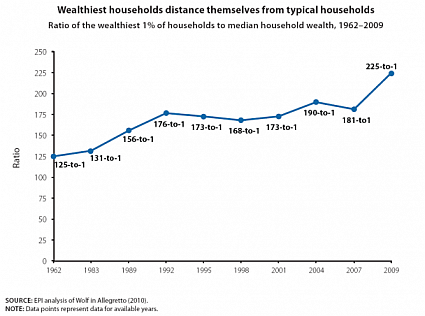 (Source: Economic Policy Institute)
(Source: Economic Policy Institute)
So, what about welfare payments? That would be a direct measure of any type of 'spreading the wealth'. Here's a graph from USGovernmentSpending.com. If you follow that link, you can play around with graph settings to see this plotted any way you like. Starting around the Great Depression, welfare payments started gradually increasing until around the mid '70s. From that point all the way until 2000, welfare spending actually decreased, until the dot com bubble burst, and then a big spike with the Great Recession. But even since that spike in 2010, Welfare spending has decreased back to almost pre-recession levels. (And of course, since the graph goes out to 2019, those future years are projections.)
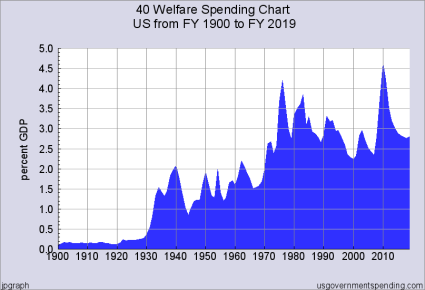 (Source: USGovernmentSpending.com)
(Source: USGovernmentSpending.com)
What about taxes? That would be another measure of how much people are contributing. The Center for Tax Justice analyzed the taxes paid by different income groups in 2013 (Who Pays Taxes in America in 2013? ). They looked beyond just federal income tax to all taxes people pay, including federal payroll taxes, federal excise taxes, state and local taxes, etc. When you look at the total tax burden, it's only slightly progressive, with people paying taxes roughly proportional to their income.
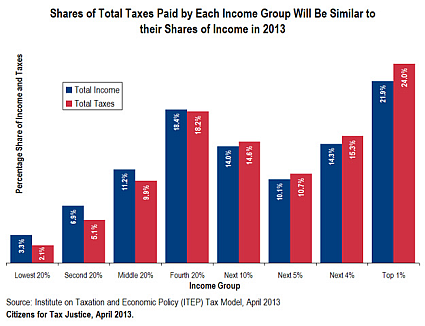 (Source: Center for Tax Justice)
(Source: Center for Tax Justice)
I'm tired of being told that Islam is a "Religion of Peace," when every day I can read dozens of stories of Muslim men killing their sisters, wives and daughters for their family "honour"; of Muslims rioting over some slight offence; of Muslims murdering Christian and Jews because they aren't "believers"; of Muslims burning schools for girls; of Muslims stoning teenage rape victims to death for "adultery"; of Muslims mutilating the genitals of little girls; all in the name of Allah, because the Qur'an and Shari'a law tells them to.
I admit to being a bit torn on this one. I don't particularly like religion in general, including Islam. But religion is only one characteristic of people, so disliking the religion doesn't mean disliking the people who believe that religion, as long as they're otherwise good. Plus, I've seen far too many people demonize all Muslims because of the actions of extremists.
Looking at another religion, it's not too hard to find examples of Christians behaving badly - bombing clinics, assassinating doctors, mass shootings in non-Christian holy places, killing children accused of witchcraft, etc. (for links documenting these and other examples, see one of my older blog entries, Why Do I Spend So Much Time on Religion). Thankfully, not all Christians act so horribly. But, just like I won't tar all Christians because of the actions of their worst members, I shouldn't tar all Muslims because of the actions of their worst members.
I'm tired of being told that out of "tolerance for other cultures" we must let Saudi Arabia and other Arab countries use our oil money to fund mosques and madrassa Islamic schools to preach hate in Australia, New Zealand, UK, America and Canada, while no one from these countries are allowed to fund a church, synagogue or religious school in Saudi Arabia or any other Arab country to teach love and tolerance.
I'm not sure I understand the reasoning here. If the argument is that it's bad that Arab countries don't allow religious freedom, I would agree. Religious freedom is a cornerstone of this nation, and essential for a free and open society. What I don't get is when he seems to suggest that we shouldn't allow religious freedom in this country. Just because some nations restrict freedom doesn't mean we should restrict freedom here.
I'm tired of being told I must lower my living standard to fight global warming, which no one is allowed to debate.
More selfishness. This guy doesn't want to hurt his standard of living, even if that standard comes at the cost of others and future generations.
I've written about global warming several times before:
From the entry in the third link, here's a graph I copied from another site showing measured temperature change, the predictions from climate models, and the forcings due to different phenomena. While measurements don't track the predictions exactly, they're pretty close, and definitely show a trend of increasing temperature.
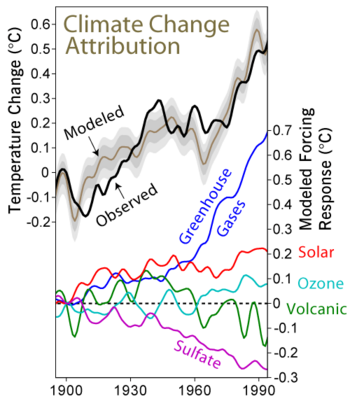 (Source: Global Warming Art)
(Source: Global Warming Art)
As an example of the effects of global warming, here's a graph I made for the entry in that second link, showing arctic sea ice extent over the years. You can see a pretty clear trend that the ice extent is decreasing.
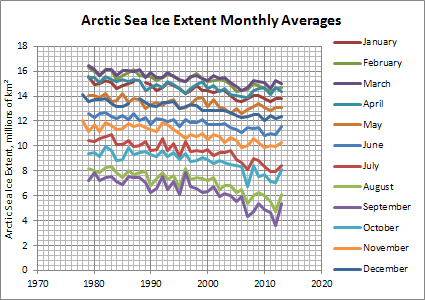
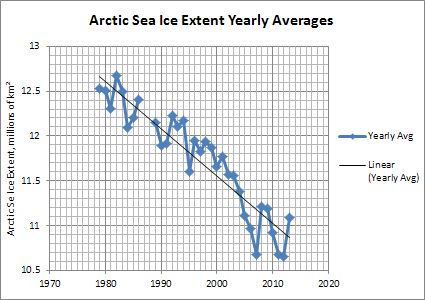
That's just stuff I've put together. There are better sources of information out there, such as this recently published page from the American Association for the Advancement of Science, The Reality, Risks and Response to Climate Change. Fully 97% of climate scientists agree that climate change is real and being caused by humans. I know it's possible for experts to be wrong, but it's hard to imagine so many people who devote their whole lives to studying something getting it completely wrong, especially considering the near unanimous agreement among those people. It's not that debate on climate change isn't allowed - it's that we're already past the point where there's any real debate about whether or not it's happening, and the debate now should be what to do about it.
I'm tired of being told that drug addicts have a disease, and I must help support and treat them, and pay for the damage they do. Did a giant germ rush out of a dark alley, grab them, and stuff white powder up their noses or stick a needle in their arm while they tried to fight It off?
Drug addiction, including alcoholism, is characterized by changes to the actual structure of the brain. It is a physical dependence, and is no longer a simple matter of choice like deciding what color shirt to wear. (more info: NIH - The Science of Drug Abuse and Addiction)
Trying a drug once does not make somebody an addict. Many people are able to experiment with drugs or use them socially without becoming addicts, and don't suspect that they will be the ones to develop addiction. Just look at how many people drink alcohol without problems. True, nobody may have forced addicts to drink that first bottle of beer or sip that first glass of wine or puff that first cigarette or take that first hit, but can you really say it's not a disease because the person made a mistake that led to it? That would be like saying STDs aren't diseases because nobody forced them to have sex. It's still a disease.
Ignoring compassion, what would you rather do with addicts - provide them an opportunity for treatment so that they can be cured and become functioning members of society able to contribute something back, or let them stay stuck as addicts, unable to hold steady jobs, forced to either live off of the charity of others, or turning to whatever means they can to make a buck, even if it means becoming criminals to steal the money? Personally, I'd rather chip in a little of my taxes if it means there will be less criminals trying to break into my house.
I'm tired of hearing wealthy athletes, entertainers and politicians of all parties talking about innocent mistakes, stupid mistakes or youthful mistakes, when we all know they think their only mistake was getting caught. I'm tired of people with a sense of entitlement, rich or poor.
I don't think anybody would argue with this, but I don't think it's anything new, either. Just look back to Babe Ruth and the example he set.
I'm really tired of people who don't take responsibility for their lives and actions. I'm tired of hearing them blame the government, or discrimination or big-whatever for their problems.
I agree that people as individuals should take responsibility for their lives. Though I'll be honest, I don't personally know too many people who don't.
But I'll turn this around. I'm really tired of people who don't accept their ethical responsibility to the rest of society. Look at it this way. If I broke down on the side of the highway, I'm not going to try to flag somebody down to help me. I'm going take care of things myself. But if I see somebody else broken down, I'm going to stop and help them. I feel a social responsibility to help others.
Helping other people shouldn't just be limited to people acting privately. Right there in the preamble to the Constitution, it lists "promote the general welfare" as one of the responsibilities of government. It's not just something government can do, but something government is supposed to do. If you have a problem with government promoting the general welfare, take it up with the Founding Fathers.
I'm also tired and fed up with seeing young men and women in their teens and early 20s be-deck themselves in tattoos and face studs, thereby making themselves un-employable and claiming money from the Government.
I've used this line before, but I'll use it again now. In this era of Wikipedia - citation needed.
Why are those people unemployable? Even in service industries, where image to the customer is important, I've had waiters, waitresses, and cashiers with tattoos, piercings, gages, etc. I'd guess it's even more common in areas of business where they don't have to interact with customers (manufacturing, office jobs). But I'll be honest, I'm getting a little tired of researching this guy's claims, and this is one of his lesser ones, so I'm not going to bother trying to find statistics on the percentage of welfare recipients who have either tattoos or face studs compared to the general population. My guess is that having tattoos or piercings has little correlation to being on welfare.
Yes, I'm damn tired. But I'm also glad to be 83. Because, mostly, I'm not going to have to see the world these people are making. I'm just sorry for my granddaughter and their children. Thank God I'm on the way out and not on the way in.
Again with the self-centered attitude. I find it hard to imagine the type of selfishness it takes to say 'oh well, not my problem', if you really think the problems are as bad as this guy thinks.
There is no way this will be widely publicized, unless each of us sends it on! This is your chance to make a difference.
"I'm 83 and I'm tired. If you don't forward this you are part of the problem".
I think I have a different idea from this guy as to of who's part of the problem facing society right now.
If there's one theme I noticed throughout this guy's article, it's his selfishness and self-centered attitude. So much of what he wrote about was how it affected him, with never a thought to the well-being of other people or any sense of social responsibility. Coupled with his mis-informed views and misleading statements, there's not much about this e-mail that I agreed with.
 I missed last week's entry, and now I'm going to miss posting something again this week. And to be honest, I suspect I won't post anything next week, either. I've just been really busy at work, keeping my lunchbreaks short, and really busy at home, breaking up my routine of what had been a normal schedule reading the Bible. So, I'm going to take a brief hiatus on this series. I should be back to posting again on April 11th, or maybe the 18th.
I missed last week's entry, and now I'm going to miss posting something again this week. And to be honest, I suspect I won't post anything next week, either. I've just been really busy at work, keeping my lunchbreaks short, and really busy at home, breaking up my routine of what had been a normal schedule reading the Bible. So, I'm going to take a brief hiatus on this series. I should be back to posting again on April 11th, or maybe the 18th.
 I've gotten another e-mail forward that I couldn't resist replying to. The subject line was 'Bill Cosby...Tired at 83'. It's a list of all the supposed ills in our society, and how the writer is tired of them. And surprise, surprise, the writer's opinions just happen to coincide with a typical right wing stance (see my older entry,
I've gotten another e-mail forward that I couldn't resist replying to. The subject line was 'Bill Cosby...Tired at 83'. It's a list of all the supposed ills in our society, and how the writer is tired of them. And surprise, surprise, the writer's opinions just happen to coincide with a typical right wing stance (see my older entry, 








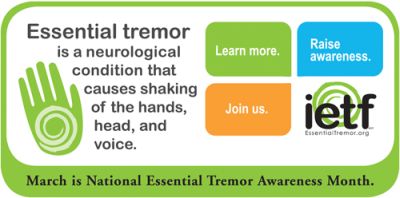



 Another month gone by, another chance to look at the server logs. There were no huge surprises this week. Every page that made the list had made it before. However, the page,
Another month gone by, another chance to look at the server logs. There were no huge surprises this week. Every page that made the list had made it before. However, the page,